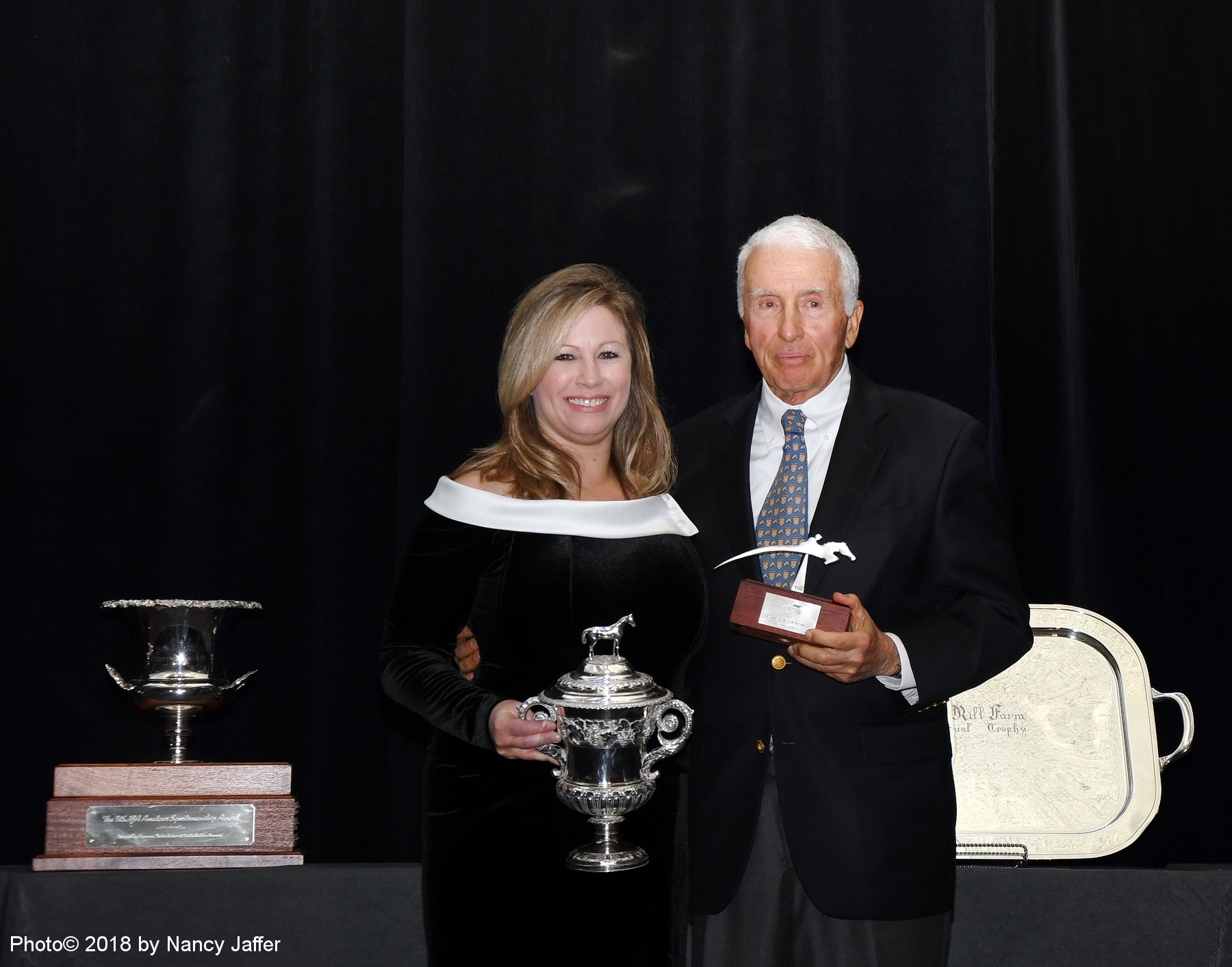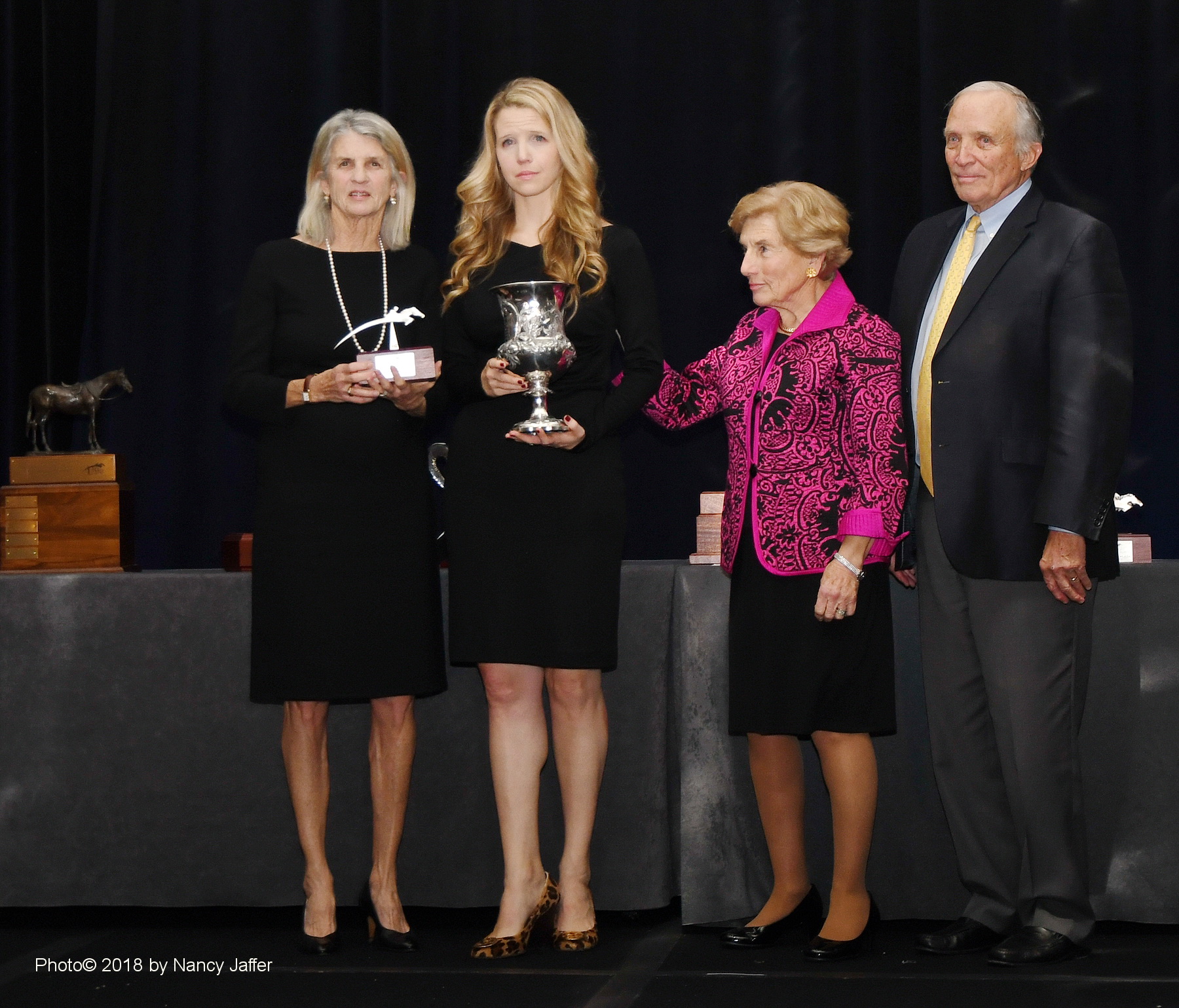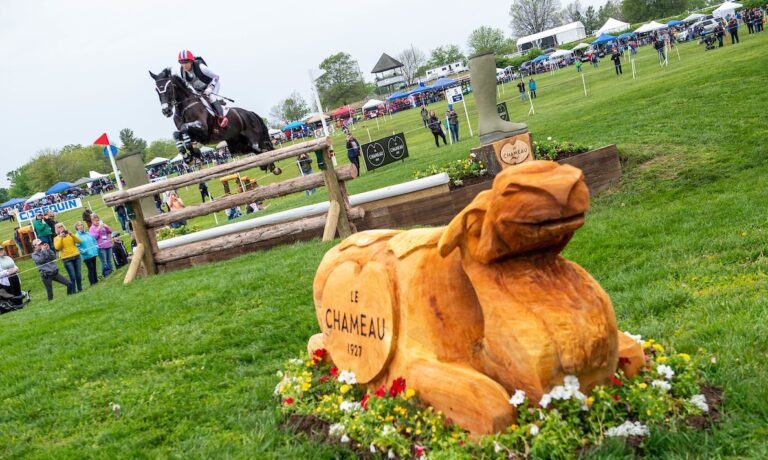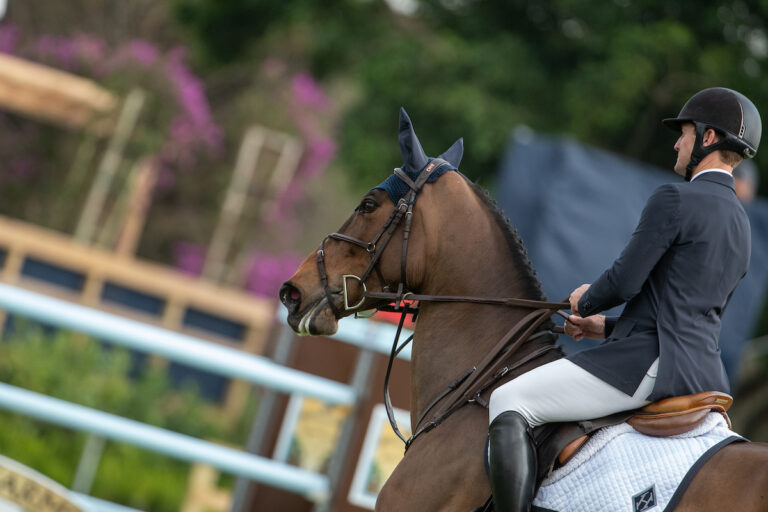“What’s in it for me?” seemed like a legitimate concern for many of the 275 people who attended the U.S. Hunter Jumper Association’s annual meeting this week. Was it worth the trip to Tampa for a 20-minute discussion of whether maroon is an appropriate color for a hunt coat (apparently not) or an odd proposal to have all horses at a show report every day for a jog between 7 and 9 a.m. (no one wanted that).
But out of the fog, lots of constructive conversation and a stack of rule proposals came a meeting of the minds on regulations that make sense and are geared to improving the competition experience. Safety on several fronts was a big topic. An example is a rule passed to rein in “the unsafe use of electronic devices” in schooling areas.
”There are too many near-misses. If you’re riding, you shouldn’t be on a cellphone. I’ve seen people almost crash,” said Penelope Ayers, an amateur rider from New Jersey.

On the medical front, the ad hoc safety committee has spent the last year researching the best way to deal with accidents at shows. The aim, according to its chairman, Joe Dotoli, “is to better inform exhibitors of the medical care provided” at competitions, “as a first step in a multi-step plan to improve riders’ safety in emergency situations.”
It can’t all be handled in one fell swoop, and likely will take several years to get where Joe and his committee want to go. Paramedics offering a higher grade of care than EMTs (emergency medical technicians) will be required only at Premier hunter shows, the highest level in that category, and at jumper shows level 5 and over. Smaller shows aren’t yet ready for that, with costs an issue and managers concerned about finding paramedics in some more rural areas. At this point, however, all shows will be required to state in their prizelists where the nearest hospital and trauma center are located so exhibitors can be informed.
“We all know the sport is not without risk,” said Joe, a trainer based in Rhode Island.
“We’ve reduced the number of accidents by what we’ve done. But when something does happen, what it is the level of care?”
Joe, a USEF Lifetime Achievement Award winner, is the guy who shepherded the process of making it mandatory for all hunter, jumper and hunter equitation riders to wear helmets. Remember the days of hunt caps? That’s ancient history because of Joe, who knows how to achieve a goal.
Listen to what he had to say when we talked at the meeting about the safety effort by clicking on this video.
Sometimes the rule proposals that get turned down are really interesting, because they often come back in a big way another time. A regulation that would ban all tail alterations in all breeds and disciplines, along with use of irritants in the area under the tail, didn’t pass, but it’s early days for this one.
At a time when people are more conscious than ever about cruel practices, I think you’ll hear a lot of talk about this. There were no comments on the printed sheet from other breeds and disciplines, so it will be interesting to see if it is raised again next month in West Palm Beach, Florida, at the annual meeting of the U.S. Equestrian Federation, which must approve all the rules before they go into effect. The Saddlebred, Morgan and Arabian folks to whom this particularly applies will be there in force.
There was plenty of good news to celebrate at the meeting. The inaugural AON National Championships were such a success in November that they will stay in Las Vegas for the next four years, with the title sponsor giving $50,000 every year as it did in 2018. For his efforts, show manager Pat Boyle was named Volunteer of the Year.
Lifetime achievement awards went to Michael Page and Ralph Caristo. Michael is an Olympic eventing multi-medalist, whose speech offered vivid recollections, such as the time at the Olympics when he galloped past a British competitor calling out, “Tally ho.” People were still chuckling over his tales at breakfast the next morning.

Ralph is the modest and well-loved perennial chef d’equipe for the Zone II teams at the North American Youth Championships and the Prix des States. He was quite emotional in his speech thanking USHJA for the award, but afterward, he and his wife of 42 years, Holly, who is always by his side, took time to talk. Click on this video to hear what they had to say.
A big topic at the meeting was word that zone jumper championships will debut at Platinum level (1.40 to 1.45 meters), adding to the already existing bronze, silver and gold groupings at lower levels.
Board member Diane Carney, who is in charge of the program, observed, “The kid from nowhere can do it. This is built for everyone, from amateurs and juniors to professionals.”
The concept “makes it easier for USHJA and USEF to spot human and equine talent.” A new national jumper ranking list will recognize the top 100 emerging riders in the U.S. as part of the collaboration between USHJA and USEF, which is at the peak of the show jumping athlete pathway. An educational component is the Platinum Masters Training Session, offering participants the chance to learn about everything from physio for themselves and their horses to business contracts.
Amateurs are by far the largest portion of the USHJA membership, with 17,238 on the roster, compared with 12,182 juniors and 7,561 professionals. USHJA President Mary Babick noted it was time to consider the needs of amateurs. One area where there’s a problem is in the amateur-owner jumper ranks.
When they are grouped in a class with adult amateurs, there’s no way to tell who actually owns their horse, and a number of show officials said there is rampant cheating. Going forward, horse registrations will have to include the name of the person who is riding as an amateur-owner, as well as the name of a relative or a farm if they also own the animal. There won’t be a charge for that, but there is no way to do it retroactively across the board for horses that already are registered, although individuals can take care of that if they choose. This may help insure the continuation of the amateur-owner division, which some have thought might disappear into the adult amateur section.
Board members gave standing ovations as they said farewell to two longtime members, Larry Langer and Shelley Campf. Larry was inspired to go into equestrian governance a half-century ago when he was waiting at the ingate of a show and found scoring for the class had changed.
“Who makes these stupid rules anyway?” the Californian asked at the time. Inspiration dawned.
“I realized I was missing the boat if I let others make and change the rules for our sport,” he said, and became a key player in that department. The winner of the U.S. Equestrian Federation’s Lifetime Achievement Award for his service to equestrian believes that now it is “time for me to back off a little,” deciding not to run for another term. “I am hoping that others who are sitting on the sidelines become motivated to jump in,” he said.

Shelley, an Oregon trainer who has been actively involved with the USEF’s hunter/jumper affiliate since it began, said she hopes “USHJA continues to go in a forward direction. I would like everybody to act in the utmost of integrity and not talk out of both sides of their mouth to avoid pressure.”
Part of Shelley’s farewell involved a request that the 2019 board make its first order of business to “revisit Tom Brennan’s election process and his removal from committees.”
Tom, who had been a member of the nominating committee, sought to nominate himself to the slate of board candidates during the 10-day board floor nomination period. He resigned from the nominating committee after submitting his name. The nominating committee questioned whether his nomination was eligible for inclusion on the ballot.
In a difference of opinion involving interpretation of the bylaws, it was ruled he didn’t follow procedure and could not be on the ballot. Shelley contended information on the matter that was given to the board by its legal counsel was either taken incorrectly or misinterpreted. She thought it was “an injustice to Tom” and merited further review, with emotions running high in a closed-door meeting Wednesday night.
Tom, who contended board-approved procedures and policies “were explicit, and I followed them,” noted “I hope that any outcome pushes the organization in a better place with stronger, more consistent focus on their own bylaws and values. While it might be frustrating right now, it’s probably going to improve our governance structure.”
Mary Babick said, “It is our attorney’s feeling … that was not a proper nomination. I think this has taught us our governance documents are in need of a major overhaul, which is something that has been on our radar for awhile and this just brings it to the forefront. I’m never against looking to see if there is some inconsistency of opinion.”










